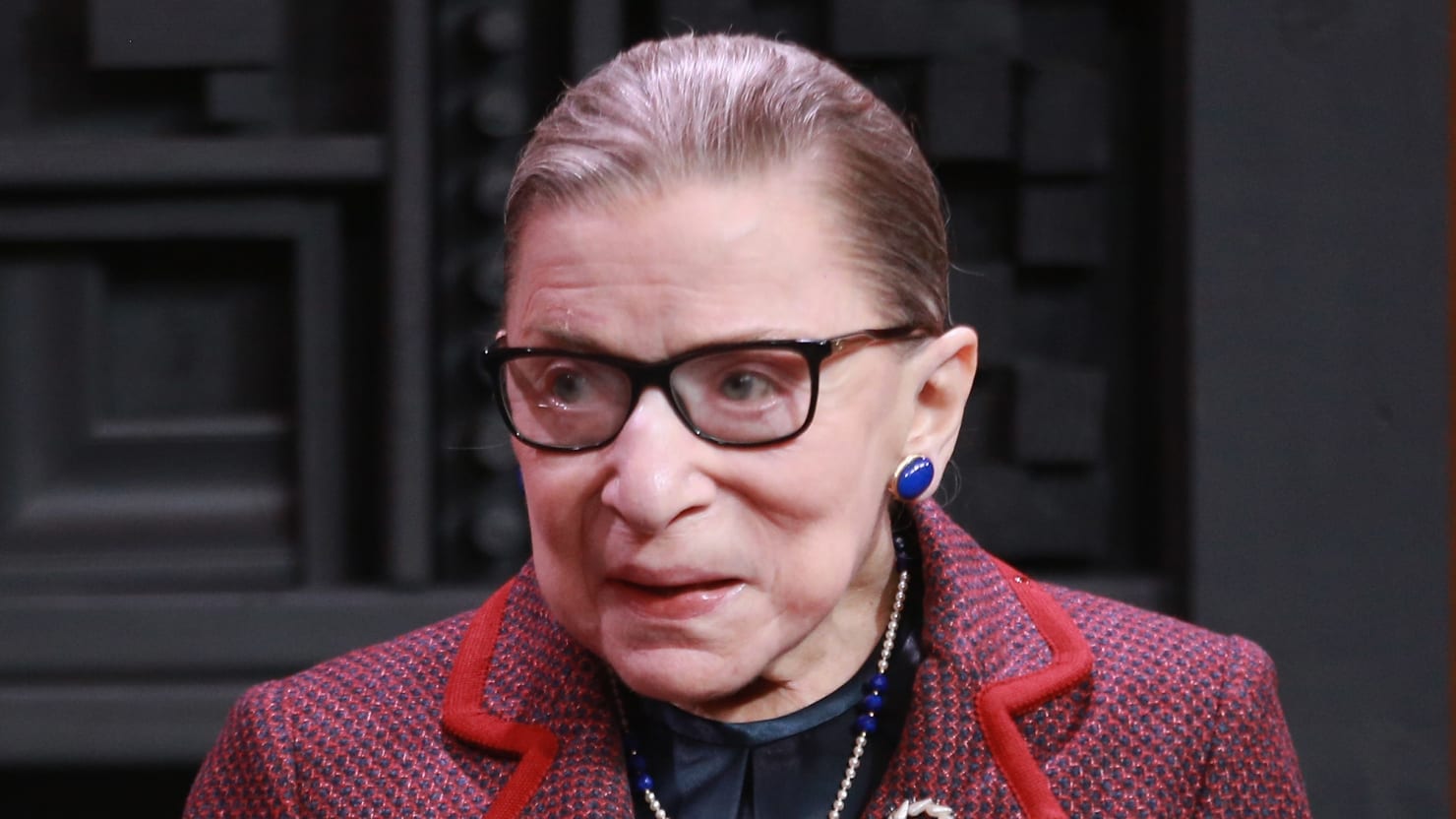‘RBG’ Directors Recall How Ruth Bader Ginsburg Wanted to Be Remembered

When Betsy West and Julie Cohen began putting together their 2018 Ruth Bader Ginsburg documentary, RBG, they knew they would never get to fit in everything they’d learned about the accomplished Supreme Court Justice. For instance: They had to leave out anecdotes about the time she learned Swedish just to become an expert in the country’s civil procedure.
As the two explained to me in 2018 for a Vanity Fair story, Ginsburg got the book assignment as a young law professor and seized it so firmly that, as Cohen put it, she “became perhaps at the time... the leading—outside of Scandinavia—expert on Swedish civil procedure.” It wasn’t as colorful an anecdote as those that made it into the doc, which captured Ginsburg’s “feminist love story,” cultural meme-ification and planking regimen.
But Cohen said in 2018 that the anecdote gave “a sense of her level of determination when she gets an assignment.” And in the wake of Ginsburg’s death Friday at 87, West and Cohen have shared what she wanted her legacy to be.
“Like so many Americans, we are crushed by the death of Justice Ruth Bader Ginsburg,” the two said in a statement Friday after news broke of the death. “Even had she not become a Supreme Court Justice, Ginsburg earned a place in history for what she did to win equality for American women.”
“When we asked her several years ago how she wanted to be remembered,” the two continued, “she said with characteristic modesty, ‘Just as someone who did whatever she could, with whatever limited talent she had, to move society along in the direction I would like it to be for my children and grandchildren.’”
RBG, which was nominated for an Oscar and took home the Emmy for Exceptional Merit in Documentary Filmmaking, charted Ginsburg’s rise as both a legal mind and cultural icon.
Throughout her career Ginsburg was a trailblazer, fighting for reproductive rights and battling against gender discrimination. And beginning around 2013, she penned a series of strong dissents that would elevate her to pop-icon status.
As Cohen told me back in 2018, Ginsburg’s writing “really struck a chord at a time when people were very hungry to hear a powerful dissenting voice. And in the five years that followed, the hunger for a quiet, but powerful, dissenting voice has only grown stronger and more intense.”
It also didn’t hurt, Cohen added, that Ginsburg’s powerful words “[come] packaged in this teeny soft-spoken, 85-year-old planking grandmother.”
From there, West said, the “Notorious RBG” hashtag began to blow up. “As Julie says... there is something funny about it,” she said, “but at the heart, there’s something incredibly serious about what she represents right now to so many Americans.”
For years Ginsburg’s health had been top of mind for many nervous Americans who worried about who President Donald Trump might appoint to replace her on the bench. Her death is the culmination of those fears—and it remains to be seen whether Democrats can successfully block a new nomination, as Republicans stymied Barack Obama’s nominee, Merrick Garland, for 11 months.
When I asked West and Cohen what surprised them about Ginsburg while making their documentary, West first noted something we’ve all witnessed first hand: Her dedication to her work.
“We witnessed it firsthand, how hard she works,” West said. “And not just in her job as a Supreme Court justice, but also her dedication to talking to audiences around the country—to legal audiences, law schools, other places where she speaks.”
“I think in many ways she sees herself as an educator,” West continued. “She has educated Supreme Court justices about gender discrimination, and she’s continuing to educate people about our democracy.”
But beyond that, West said she and Cohen had come to appreciate Ginsburg’s quiet but sharp sense of humor. “She loves to laugh and she likes to get in a few zingers herself. And that was, that was also fun to come to understand.”
tinyurlis.gdu.nuclck.ruulvis.netshrtco.de
